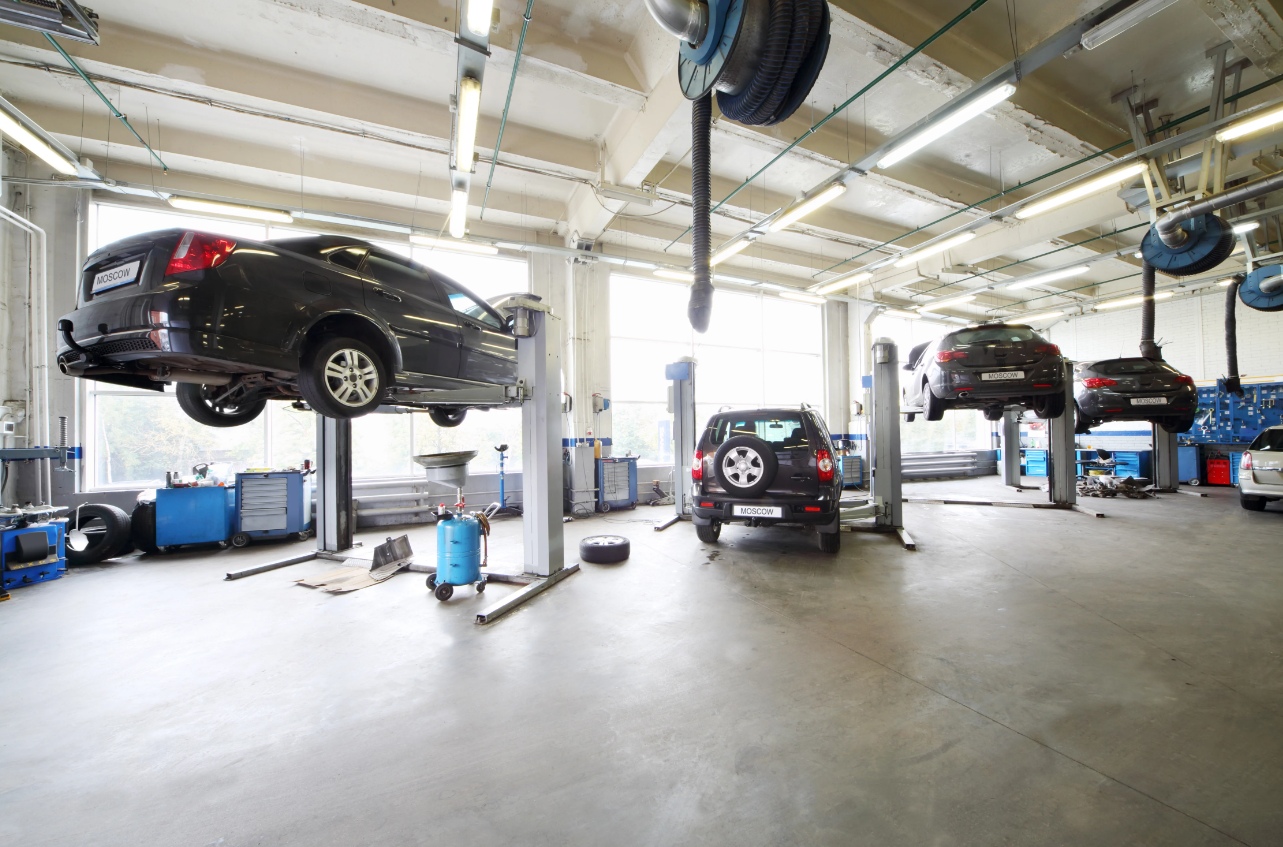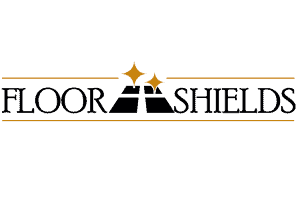Flooring Options for Auto Mechanics & Car Repair Shops

When it comes to auto mechanics and car repair shops, having the right flooring is essential. These spaces are subject to heavy foot traffic, constant movement of vehicles, oil spills, and other potential hazards. Therefore, choosing a flooring option that can withstand the demands of this environment while also providing safety and functionality is crucial.
This article will explore various flooring options specifically designed for auto mechanics and car repair shops. Whether you own a small garage or manage a larger facility, finding the right flooring solution can improve productivity, enhance safety, and create a professional environment.
Table of Contents
ToggleFlooring Options for Auto Mechanics & Car Repair Shops
Here are some top flooring options for auto mechanics and car repair shops.
Epoxy Flooring
Epoxy flooring is a trendy choice for auto mechanics and car repair shops and for a good reason. This durable flooring option is renowned for its exceptional resistance to chemicals, stains, and abrasions, making it ideal for the demanding environment of an automotive facility. Epoxy flooring consists of multiple layers of epoxy resin applied to a prepared concrete surface, creating a seamless, smooth, and high-gloss finish.
One of the critical benefits of epoxy flooring is its ability to withstand automotive fluids and chemicals commonly found in car repair shops. This flooring option is impervious to oil, grease, gasoline, and other substances, ensuring that spills and leaks can be easily cleaned up without causing damage to the floor. Furthermore, epoxy flooring is highly durable, capable of enduring heavy foot traffic, impacts, and machinery movement without wearing down or showing signs of deterioration.
In addition to its exceptional durability and chemical resistance, epoxy flooring is incredibly easy to clean and maintain. The smooth surface allows for effortless removal of dirt, dust, and debris, ensuring a clean and tidy shop environment. Regular sweeping and occasional mopping are all required to keep epoxy floors looking their best.
Not only is epoxy flooring functional and practical, but it also offers a professional and sleek appearance to the shop. The high-gloss finish reflects light, brightening up the space and providing a visually appealing aesthetic. Epoxy floors are available in a wide range of colors, allowing you to customize the look of your shop to suit your preferences and branding.
Polyurethane Flooring
Polyurethane flooring is another excellent option for auto mechanics and car repair shops. This flooring choice offers exceptional resistance to chemicals, oils, and solvents commonly encountered in automotive environments. Polyurethane flooring is created by combining polyurethane resin with various aggregates and fillers, resulting in a flexible and seamless surface that can withstand heavy-duty use.
One of the primary advantages of polyurethane flooring is its resistance to impacts and abrasions. This type of flooring is highly durable, capable of withstanding heavy machinery’s weight and vehicles’ constant movement. It is designed to endure the rigorous demands of an automotive facility without showing signs of wear or deterioration.
Polyurethane flooring is also known for its ease of cleaning and maintenance. The seamless surface makes it difficult for dirt and grime to accumulate, and any spills or stains can be easily wiped away. Routine sweeping and occasional mopping is sufficient to keep the floor clean and presentable.
Polyurethane flooring is available in a range of colors, allowing you to customize the look of your shop to match your branding or personal preference. The flooring’s smooth and glossy finish adds a touch of professionalism to the space, enhancing its overall aesthetic appeal.
Metallic Coatings
Metallic coatings have recently gained popularity as a unique and visually striking flooring option for auto mechanics and car repair shops. This innovative flooring system combines metallic pigments, epoxy or polyurethane resins, and clear topcoats to create a distinctive, high-gloss, and reflective surface.
One of the main attractions of metallic coatings is their stunning appearance. The metallic pigments create a three-dimensional, marbled effect that adds depth and character to the floor. The pigments can be customized to match the shop’s branding or personal preferences, creating a truly unique and eye-catching floor design.
Beyond aesthetics, metallic coatings offer exceptional durability and resistance to chemicals and abrasions. They are designed to withstand the demands of an automotive environment, including heavy foot traffic, dropped tools, and vehicle movement. The top coat provides an additional layer of protection, ensuring the longevity of the floor and its resistance to spills, stains, and impacts.
Like other epoxy or polyurethane flooring options, metallic coatings are relatively easy to clean and maintain. Routine sweeping and occasional mopping is sufficient to keep the floor looking its best. The reflective surface of metallic coatings also enhances the brightness of the shop, improving visibility and creating a welcoming atmosphere.
It is important to note that metallic coatings are typically more labor-intensive and require specialized installation techniques. The application process involves the skillful manipulation of the metallic pigments to achieve the desired pattern and effect. Therefore, hiring experienced professionals who specialize in metallic coating installations is essential.
Vinyl Composite Tile (VCT)
Vinyl Composite Tile (VCT) is a versatile and cost-effective flooring option well-suited for auto mechanics and car repair shops. VCT is composed of vinyl chips embedded in a vinyl base, creating a durable and resilient surface that can withstand heavy foot traffic and the demands of an automotive environment.
One of the main advantages of VCT is its affordability. It is a budget-friendly option that offers good value for money without compromising quality. Despite its lower cost, VCT is known for its durability and long lifespan, making it a practical choice for high-traffic areas such as auto repair shops.
VCT is also available in a wide range of colors and patterns, allowing for customization and creativity in your shop’s flooring design. Whether you prefer a sleek and professional look or want to incorporate your branding, VCT offers flexibility in achieving the desired aesthetic.
Rubber Flooring
Rubber flooring is an excellent choice for auto mechanics and car repair shops due to its exceptional durability, slip resistance, and comfort underfoot. This type of flooring is highly resilient and can withstand heavy machinery, impacts, and constant foot traffic without showing signs of wear and tear.
One of the main advantages of rubber flooring is its ability to absorb shock and reduce fatigue. Mechanics who spend long hours standing will appreciate the cushioning effect of rubber, which helps alleviate strain on joints and muscles. The slip resistance of rubber flooring is another critical feature, providing a safer working environment even when exposed to oils and fluids commonly found in auto shops.
Rubber flooring is also highly resistant to chemicals, oils, and grease, making it an ideal choice for automotive environments. It is easy to clean and maintain, requiring regular sweeping and mopping to keep it in top condition. The inherent acoustic properties of rubber also help to reduce noise levels in busy workshops.
Rubber flooring is available in various colors, thicknesses, and textures, allowing for customization and design flexibility to suit the style and branding of your shop. It is worth noting that some rubber flooring options may have a slightly porous surface, which could require periodic sealing to enhance its stain resistance and longevity.
Concrete Sealer
Applying a high-quality concrete sealer is a practical and cost-effective flooring option for auto mechanics and car repair shops on a tight budget or those who prefer the natural look of concrete. A concrete sealer acts as a protective layer that enhances the durability of the concrete floor, making it more resistant to oil stains and easier to clean.
A properly sealed concrete floor can withstand moderate exposure to automotive fluids and chemicals, preventing them from penetrating the surface and causing damage. Spills can be quickly wiped away, reducing the risk of stains and facilitating easy maintenance.
In addition to its affordability and ease of maintenance, a concrete sealer can enhance the overall aesthetics of the shop. It provides a glossy finish that enhances the appearance of the concrete, giving it a clean and polished look. Concrete sealers can also improve light reflectivity, brightening the space and creating a more pleasant working environment.
It is important to note that concrete floors should be prepared and cleaned thoroughly before applying a sealer. This includes repairing cracks or imperfections and ensuring the surface is clean and dry. Applying multiple coats of sealer and periodic reapplication as needed will help maintain the protective properties of the sealer over time.
Conclusion
In conclusion, choosing the right flooring for an auto mechanic or car repair shop ensures a safe and efficient work environment. The three main options are epoxy coatings, interlocking tiles, and rolled rubber flooring. Each option has advantages and disadvantages, so it is important to weigh them carefully before deciding. Ultimately, the choice should be based on budget, durability, ease of installation, and maintenance requirements. By investing in high-quality flooring that meets the shop’s specific needs, mechanics can enhance their productivity and create a safer space for themselves and their customers.








